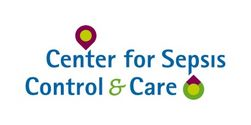Current members
Post docs:
Dr. rer. nat. Marina Garcia-Moreno,
Dr. rer. nat. Michelle Mauer
PhD students:
Vandana Arakandy, Flora Radner, Monika Vermes, Valeria Hackemann
Master students:
Kwaku Atiao
Technical assistance:
Sindy Wendler



Post docs:
Dr. rer. nat. Marina Garcia-Moreno,
Dr. rer. nat. Michelle Mauer
PhD students:
Vandana Arakandy, Flora Radner, Monika Vermes, Valeria Hackemann
Master students:
Kwaku Atiao
Technical assistance:
Sindy Wendler
Our research:
In terms of basic research, our focus is on the interaction of the bacterial pathogens with the host organism. We analyze pathogenesis mechanisms that enable the bacteria to establish both acute and chronic infections while avoiding the immune system and antibiotic therapy. These infection strategies are primarily investigated on the bacterium Staphylococcus aureus. In order to analyze the interaction of the bacteria with the host organism during the whole infection process, we established chronic in vitro and in vivo infection models, which we analyze using molecular biology methods. Using our tools, we can investigate specially the adaptation of S. aureus to the host to establish a chronic and persistent infection.
In addition, the microbial interaction during infection is another field in our research. In collaboration with the HNO clinic from Jena (Prof. Dr. Guntinas) some groups from Microverse (Prof. Dr. T. Figge and Dr. G. Panagiotou) we investigate the relation between pathogens and their interaction with the host.
Furthermore, the link between aging and infection is investigated in our group in collaboration with Dr. M. Ermolaeva (FLI).
| Funding agency | Topic/Title |
| IZKF | Impact of cefazolin and flucloxacillin on Staphylococcus aureus isolates from endocarditis |
| IZKF | Impact of lipid-mediated dietary factors on osteoblasts and osteocytes during S. aureus infection |
| JSAM | Influence of Aging on the Susceptibility to S. aureus Infections |
| DFG/ZIM | Straightforward single-cell transcriptomics (S2CT) |
| DFG | Integrative preclinical strategies for targeting the local mesenchyme as a regulator of tissue specificity in inflammatory musculoskeletal disorders (IMDs) (MESINFLAME) |
| CSCC/IZKF | Microbial interaction between S. aureus and A. baumannii (StaphAci) |
| CSCC | From colonization to infection: Staphylococcus aureus and microbial interactions in healthy carriers and in patients with chronic rhinosinusitis (StaphMicroNose) |
| Free State of Thuringia | Role of lipid transfer from host cells to S. aureus during chronic infection and consequences for host immune response (Lipstaph) |
| CSCC | NESSIE - NExt-generation sequencing and cell culture-based characterization of S. aureus in infectious endocarditis |
| CSCC | A retrospective study on personalized therapy options for complicated Staphylococcus aureus-bacteremia (PRE-PETROS) |




Pathogenesis of S. aureus infection, Mechanisms of S. aureus persistence, Virulence of S. aureus, Infection Cell culture models, In vivo models to study acute and chronic infection, host-pathogen interaction during infection, microbial communication.
Main scientific contributions:
Identify the bacterial adaptation mechanisms to evade host response and persist for long periods within host cells
07/2017 |
Habilitation (post doc thesis), University of Jena, Germany, Title: “The strategies of Staphylococcus aureus to develop a chronic infection”. Advisor: Prof. Dr. Löffler |
2017 |
Authorization to work with bacteria from security groups II and III (Erlaubnis zur Tätigkeit mit Krankheitserregern der Risikogruppen II und III), Jena. |
2013 |
Specialization to work in laboratories S2 with genetic modified bacteria: “Fortbildungsveranstaltung zu Sicherheitsmaßnahmen und Arbeitsshutz bei gentechnischen Arbeiten”, Münster |
2004 |
Training on animal experiments and molecular biology tools to investigate the expression of staphylococcal capsule, Harvard University. |
2002–2007 |
PhD, Biology, Buenos Aires University, School of Sciences, Buenos Aires, Argentina, Thesis: “Loss of capsule expression of Staphylococcus aureus in chronic infection: causative factors and pathological significance of this finding”, Advisor: Prof. Dr. Daniel O. Sordelli |
2001–2002 |
MSc, Biology, Buenos Aires University, School of Sciences, Buenos Aires, Argentina, Thesis: “Molecular analysis of locus cap in non-typeable Staphylococcus aureus isolates from Argentina”, Advisor: Dr. Marisa Gómez |
since 2020 |
Editorial board member of Toxins |
| 2019–2020 | Guest editor of Frontiers in Microbiology |
| since 2014 | Head of research group on S. aureus pathogenesis. Institute of Medical Microbiology, Jena, Universitätsklinikum Jena, Germany |
| 2007–2014 | Post doc, Biology, University of Münster, Germany, Advisor: Prof. Dr. Löffler |
| 2007 | Post doc, Biology, University of Buenos Aires, Argentina. Advisor: Prof. Dr. D. Sordelli |
| 2002–2003 | Laboratory Technician. Mycobacteriology Laboratory. Enrique Tornú General Hospital, City of Buenos Aires |
| 2001–2007 | Research Assistant. Department of Microbiology, Parasitology and Immunology, School of Medicine, University of Buenos Aires |
| 1999–2001 | Research Assistant. Department of Physiology, School of Medicine, University of Buenos Aires |
| 1996–2001 | Laboratory Technician. General Bacteriology Laboratory. Enrique Tornú General Hospital, City of Buenos Aires. |
since 2015 |
Lecturer in Molecular Medicine. School of Biology, University Jena |
2007–2014 |
Assistant of laboratory trainning for medical students. Institut fur Medizinische Mikrobiologie, Münster Universitätsklinikum Münster, Germany |
since 2008 |
Supervision of PhD, Master and Bachelor students. |
2001–2007 |
Head of laboratory training for medical students. Department of Microbiology, Parasitology and Immunology, School of Medicine, University of Buenos Aires |
Spanish: mother tongue
English: fluently
German: level B2
Pubmed: Tuchscherr L or Tuchscherr LP
